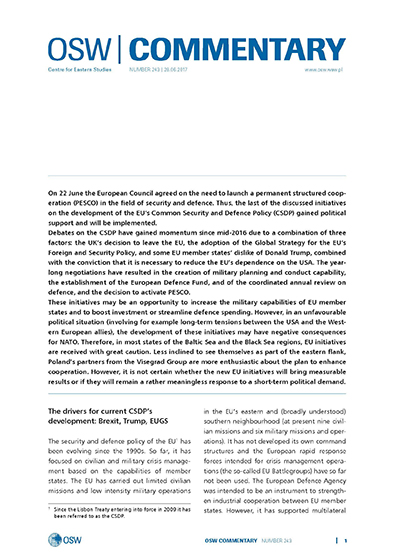Beijing’s mistaken offer: the ‘16+1’ and China’s policy towards the European Union
Beijing’s mistaken offer: the ‘16+1’ and China’s policy towards the European Union
Author(s): Jakub Jakóbowski, Marcin Kaczmarski
Subject(s): Governance, Public Administration, Public Law, Economic policy, International relations/trade, Developing nations, Geopolitics
Published by: OSW Ośrodek Studiów Wschodnich im. Marka Karpia
Keywords: Beijing; China; 16+1; European Union
Summary/Abstract: Despite China’s growing political and economic involvement in Central and Eastern Europe (CEE), Beijing has not succeeded in making an attractive offer to the region’s EU member states – who make up the majority of the participants in the ‘16+1’ format. The financing model proposed by China, based on loans and favouritism towards Chinese companies, has proved to be unsuitable to local conditions. Therefore, the much-discussed infrastructure cooperation has not even started. Consequently, Beijing has failed to obtain the political tools which could have weakened policy coherence at the European level, or even divided the EU. In this context, the allegations appearing in the public debate that the countries of the ‘16+1’ have been fostering divisions within the EU seem to be substantially incorrect. As long as Central and Eastern Europe remains capable of pursuing its economic and developmental interests within the architecture of the European Union, the political risks coming from China’s capital inflow will remain limited. At the same time, the EU has room to facilitate constructive economic relationships between China and the Central European region. For example, it could reduce Beijing’s political pressure on CEE to use the specific, Chinese model for financing and building infrastructure. Cooperation at the EU level could also help to adapt the Chinese offer to the European business and regulatory environment.
Series: OSW Commentary
- Page Count: 7
- Publication Year: 2017
- Language: English
- Content File-PDF

